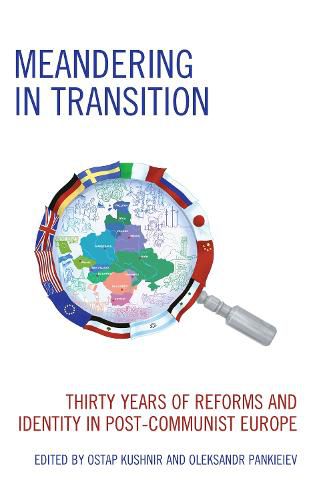Readings Newsletter
Become a Readings Member to make your shopping experience even easier.
Sign in or sign up for free!
You’re not far away from qualifying for FREE standard shipping within Australia
You’ve qualified for FREE standard shipping within Australia
The cart is loading…






This edited collection addresses the dynamics of the post-Communist transition in Central Eastern Europe. Its contributors present a detailed analysis of the events unfolding during the last three decades in the region, focusing in particular on identity-building processes and reforms in Belarus, Bulgaria, Czechia, Estonia, Hungary, Latvia, Lithuania, Moldova, Poland, Romania, Slovakia, and Ukraine.
The contributors outline reasons why some of these states accomplished a decisive break with the Communist past and became members of European and transatlantic structures, while some opted for pseudo-transition and fostered hybrid political regimes, jeopardizing their genuine integration with the West. A group of states which decided to preserve their Communist legacy is also explained.
The collection describes and scrutinizes the formation of geopolitical affiliations and the evolution of discourses of belonging. It also traces the fluctuating dynamics of national decision-making and institution-building, as many of the post-Communist states reconsider and re-elaborate their initial ideas and visions of Europe today.
Finally, the collection brings to light the rapidly changing perceptions of the region by the major global actors-the European Union, People’s Republic of China, Russian Federation, and others.
$9.00 standard shipping within Australia
FREE standard shipping within Australia for orders over $100.00
Express & International shipping calculated at checkout
This edited collection addresses the dynamics of the post-Communist transition in Central Eastern Europe. Its contributors present a detailed analysis of the events unfolding during the last three decades in the region, focusing in particular on identity-building processes and reforms in Belarus, Bulgaria, Czechia, Estonia, Hungary, Latvia, Lithuania, Moldova, Poland, Romania, Slovakia, and Ukraine.
The contributors outline reasons why some of these states accomplished a decisive break with the Communist past and became members of European and transatlantic structures, while some opted for pseudo-transition and fostered hybrid political regimes, jeopardizing their genuine integration with the West. A group of states which decided to preserve their Communist legacy is also explained.
The collection describes and scrutinizes the formation of geopolitical affiliations and the evolution of discourses of belonging. It also traces the fluctuating dynamics of national decision-making and institution-building, as many of the post-Communist states reconsider and re-elaborate their initial ideas and visions of Europe today.
Finally, the collection brings to light the rapidly changing perceptions of the region by the major global actors-the European Union, People’s Republic of China, Russian Federation, and others.